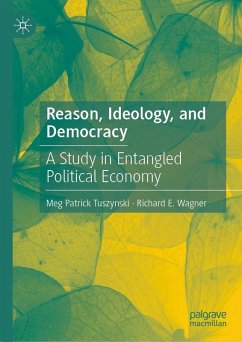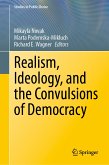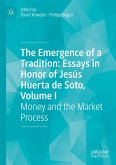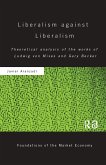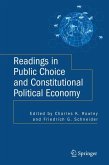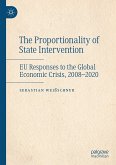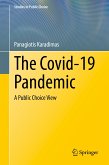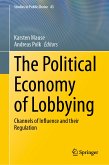Democratic nations tend to be freer across various aspects of life, and most people assume this political system is the best way to support liberty. The reality of democratic systems differs from popular rhetoric. One of the key reasons for this is that our system is entangled. The political and commercial are so intertwined that they cannot be easily separated. Businesses have political interests, and politicians have commercial interests. Due to the logic of entanglement, returning to a "free market" is not always an option.
In this book, the authors pull economics back to its classical roots to analyze the social orders that best allow people to live together. The world is not constantly aiming at placidity, as the prevailing economics of equilibrium would have us think. We live in a world of change and turbulence, so our social science requires a framework that deals with this turbulence robustly. Classical economists beginning with Adam Smith sought to uncover which forms of human association allowed us to live better together. The authors explain Smith's observations, asking the same sorts of questions of readers today.
Because the baseline assumption of entanglement does not allow one to divide the world so clearly into two distinct structures, the authors parallel Smith's approach, focusing on forms of association rather than political or commercial structures. Focusing on human association, the authors help readers uncover the manifold structures humans have devised that allow them to tame the turbulence and live lives more harmoniously with others.
Meg Patrick Tuszynski is Managing Director of the Bridwell Institute for Economic Freedom and Research Assistant Professor in the Cox School of Business at Southern Methodist University. Tuszynski has published research in Public Choice, Southern Economic Journal, Journal of Entrepreneurship and Public Policy, Journal of Regional Analysis and Policy, and American Journal of Entrepreneurship, among others.
Richard E. Wagner is Holbert L. Harris Professor of Economics, Emeritus, at George Mason University. He was the founding co-editor of Constitutional Political Economy from 1989-1997, and he is currently a member of the editorial boards of Constitutional Political Economy, Journal of Public Finance and Public Choice, Journal of Infrastructure, Policy, and Development, and Review of Austrian Economics.
In this book, the authors pull economics back to its classical roots to analyze the social orders that best allow people to live together. The world is not constantly aiming at placidity, as the prevailing economics of equilibrium would have us think. We live in a world of change and turbulence, so our social science requires a framework that deals with this turbulence robustly. Classical economists beginning with Adam Smith sought to uncover which forms of human association allowed us to live better together. The authors explain Smith's observations, asking the same sorts of questions of readers today.
Because the baseline assumption of entanglement does not allow one to divide the world so clearly into two distinct structures, the authors parallel Smith's approach, focusing on forms of association rather than political or commercial structures. Focusing on human association, the authors help readers uncover the manifold structures humans have devised that allow them to tame the turbulence and live lives more harmoniously with others.
Meg Patrick Tuszynski is Managing Director of the Bridwell Institute for Economic Freedom and Research Assistant Professor in the Cox School of Business at Southern Methodist University. Tuszynski has published research in Public Choice, Southern Economic Journal, Journal of Entrepreneurship and Public Policy, Journal of Regional Analysis and Policy, and American Journal of Entrepreneurship, among others.
Richard E. Wagner is Holbert L. Harris Professor of Economics, Emeritus, at George Mason University. He was the founding co-editor of Constitutional Political Economy from 1989-1997, and he is currently a member of the editorial boards of Constitutional Political Economy, Journal of Public Finance and Public Choice, Journal of Infrastructure, Policy, and Development, and Review of Austrian Economics.
Dieser Download kann aus rechtlichen Gründen nur mit Rechnungsadresse in A, B, BG, CY, CZ, D, DK, EW, E, FIN, F, GR, HR, H, IRL, I, LT, L, LR, M, NL, PL, P, R, S, SLO, SK ausgeliefert werden.

